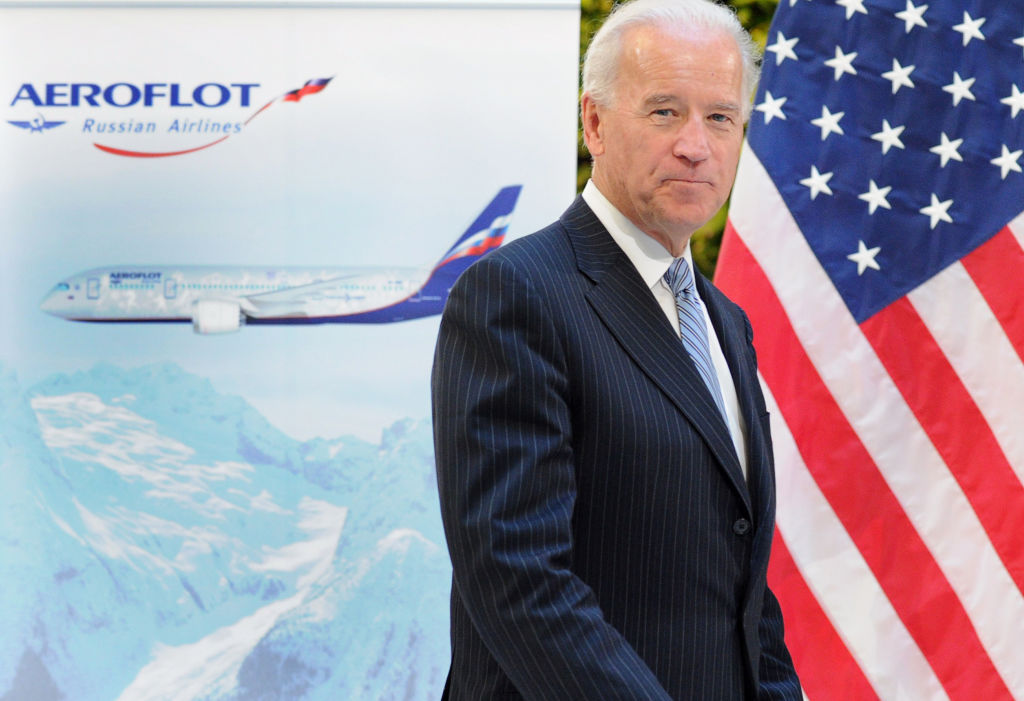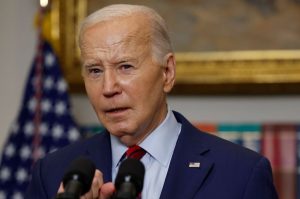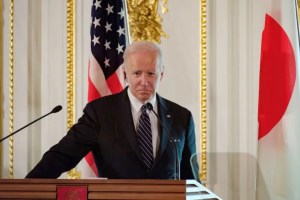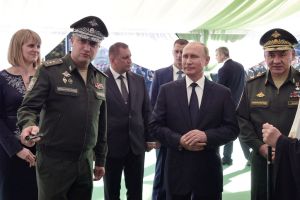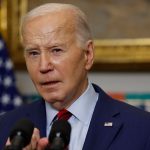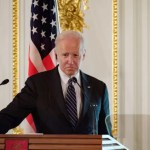It’s not easy to frame sanctions, these days. They occupy that huge, hazy diplomatic no man’s land between sternly-worded but essentially vacuous expressions of concern — grave concern, if you really want to pretend you’re serious — and sending a gunboat. When it comes to trying to make an impression on Vladimir Putin, who has no qualms about causing the West concerns — and has a good few gunboats of his own — this is a doubly-difficult challenge.
The latest US sanctions are a case in point, a mix of the cosmetic and the consequential that are more about political signaling than anything else. This is President Biden reassuring the hawkish wing of his party that he’s tough on Russia, while warning Putin that he could have gone much further. One of the problems for the administration is they are trying to formulate responses to a whole host of what it is now fashionable to call ‘malign activities.’
There are sanctions on some fringe media outlets apparently close to or run by Russian intelligence agencies accused of interfering in the 2020 elections, as well as the expulsion of 10 Russian diplomats considered spies. There are quite a few measures directed against Yevgeniy Prigozhin, the (convicted) criminal turned catering magnate who is suspected of being the manager of both the ‘troll farms’ spewing out toxic social media posts to order, as well as the Wagner mercenary organization now so active in Africa.
Following recent high-profile incidents, there are sanctions on various Russian technology companies accused of providing the Kremlin’s hackers with particular capabilities and technologies.
To remind everyone that it neither recognizes or accepts the annexation of Crimea, several local officials and companies involved in building the massive new bridge connecting it to the Russian mainland are also hit.
Finally, and perhaps most interesting, the Treasury is banning US financial institutions from taking part in the primary market for Russian OFZ government bonds.
On the one hand, it is easy to dismiss much of these sanctions as symbolic (though symbolism matters in politics in general and diplomacy in particular). Someone like Leonid Mikhailiuk, the head of the Crimean branch of the feared Federal Security Service, is unlikely to have had plans to go antiquing in New England, and ERA Technopolis, a research center run by the Russian defense ministry, was probably not anyway going to be floating itself on the New York Stock Exchange.
However, the specificity of these sanctions is a signal in itself: just as with previous US documents that have not only named names but even given the street addresses of various covert agencies, this is a warning to the Kremlin that the US intelligence community has a detailed grasp of what is being done by Russia, by whom, and under whose orders.
As for the wider financial sanctions, they are also carefully judged. They fall well short of the kind of ‘nuclear options’ some hawks advocate, such as trying to kick Russia off the SWIFT inter-bank transfer system or banning US investors from holding Russian debt outright.
Not only would these measures have caused wider financial chaos, they would have been considered by the Kremlin as, in effect, a declaration of economic warfare. The hope is that the latest measures are calibrated to hurt the Russian economy enough to get the Kremlin’s attention — but not to go beyond the point of no return. It also gives Washington room to escalate, especially if Moscow moves further into Ukraine.
Because at the same time, Biden has extended an offer to Putin for a summit. This matters to the Russian president, again as a symbol, a sign of Russia’s continuing status as a great power, that even if it’s true that Biden considers Putin a ‘killer,’ he still cannot avoid sitting down with him.
That was Biden’s concession. Now, though, the Kremlin is in a corner. If they accept the invitation, they are effectively swallowing the sanctions — although there will no doubt be counter-expulsions and similar measures from Russia. But if they use the sanctions as grounds to refuse the meeting, they look petty and empower those who say there can be no dealing with this Kremlin.
There is much to criticize about the sanctions at first glance. But on second look, they are a judiciously-balanced mix of red meat to satisfy the hawks and subtle warnings to Moscow. It suggests the Biden administration’s Russia strategy will be to contain Kremlin adventurism with diplomacy, while making adventurism increasingly expensive. Given the baying anti-Russian hysteria of some within his party, this is encouraging: strong, not strident.
This article was originally published on The Spectator’s UK website.
